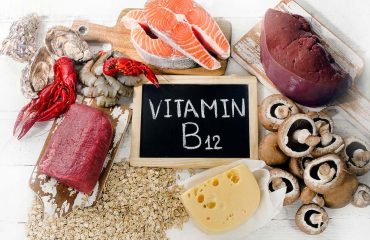Proteins are made of amino acids, and it is amino acids that make protein so important, especially for athletes. Amino acids are the building blocks of life. Studies have shown that as we age, low levels of amino acids cause, low muscle mass, reduces muscle strength, reduces overall performance and slows post exercise recovery.
Amino acids are compounds that combine to form proteins. Our bodies produce some amino acids and some amino acids we get from the protein we ingest. When ingested, proteins are broken down and what is left are amino acids.
Our bodies use amino acids to help perform certain functions including:
- Building proteins
- Synthesizing hormones
- Synthesizing neurotransmitters
- Breaking down food
- Transporting nutrients
- Growing
- Repairing tissue
- Fighting illness
- Utilize as a source of energy
There are 20 amino acids and they can be broken down into two categories, essential and nonessential.
Essential Amino Acids are not produced by the body and must come from food or supplements. Nine essential amino acids include:
- Histidine
- Isoleucine
- Leucine
- Lysine
- Methionine
- Phenylalanine
- Threonine
- Tryptophan
- Valine
Nonessential amino acids are produced by our bodies and include:
- Alanine
- Arginine
- Asparagine
- Aspartic acid
- Cysteine
- Glutamic acid
- Glutamine
- Glycine
- Proline
- Serine
- Tyrosine
A third type of amino acids are conditional amino acids. These are 7 nonessential amino acids that become essential in times of illness or stress. These are:
- Arginine
- Cysteine
- Glutamine
- Tyrosine
- Glycine
- Proline
- Serine
It is not necessary to eat all 9 essential amino acids at every meal but you do want to eat a balanced diet over the entire day that includes all 9 essential amino acids. It is no longer considered necessary to combine foods such as rice and beans to get the amino acids in one meal. All foods that contain proteins also contain some of the amino acids so vegetarians and vegans can get the essential amino acids through plant foods. Dietary sources for these 9 essential amino acids include:
- Histidine: Meat, fish, poultry, nuts, seeds, whole grains
- Isoleucine: Meat, fish, poultry, eggs, cheese, lentils, nuts, seeds
- Leucine: Dairy, soy, beans, legumes
- Lysine: Meat, eggs, soy, black beans, quinoa, pumpkin seeds
- Methionine: Eggs, grains, nuts and seeds
- Phenylalanine: Meat, fish, dairy, soy, beans, nuts
- Threonine: Cottage cheese, wheat germ
- Tryptophan: Chicken, turkey, cottage cheese, wheat germ
- Valine: Vegetables, soy, cheese, peanuts, mushrooms, whole grains
Benefits of Amino Acids
- Improve Mood
- Improve sleep
- Prevent muscle loss
- Boost exercise performance and recovery
- Weight loss
Symptoms of Amino Acid Deficiency
- Hair loss
- Dry, brittle nails
- Decreased muscle mass
- Increase appetite
- Reduced immune function and ability to fight off colds, flu and infection
- Bone loss
- Puffiness and swelling
Nutritional counseling at the Anti-Aging and Wellness Clinic
Increase protein needs and reduced food intake puts some people such as older adults, people with chronic health conditions, vegans, and vegetarians at high risk for protein deficiency. It is important to eat foods high in protein to ensure you are receiving an adequate amount of essential amino acids. The nutritional experts at the Anti-Aging and Wellness Clinic can help you create a customized health plan that includes a well-balanced diet plan.
After a complete medical history, body composition analysis, comprehensive blood test and discussion of your personal goals, we will work with you to develop a nutrition plan tailored to your specific needs. As you progress through our age management program your nutritional needs may change and will continue to work with you to refine and manage your personalized nutritional plan.
Calorie restriction, physical exercise, low stress conditions and a balanced nutritional diet are critical for fighting the signs of aging. Contact the Anti-Aging and Wellness Clinic today to learn more about how we can help you make certain you are eating a well-balanced diet that includes adequate amounts of amino acids to ensure optimal performance.








